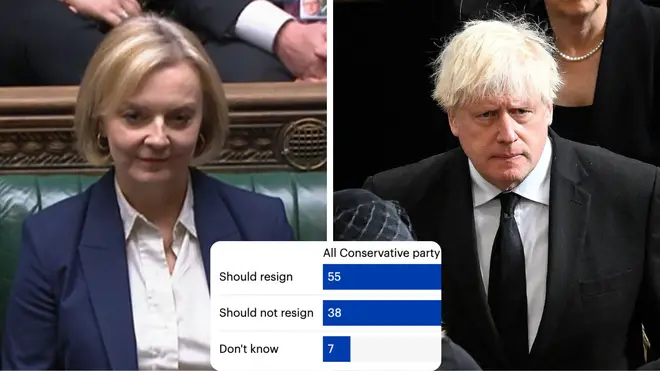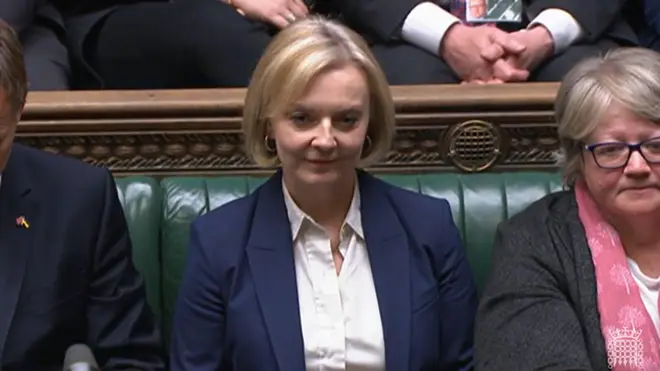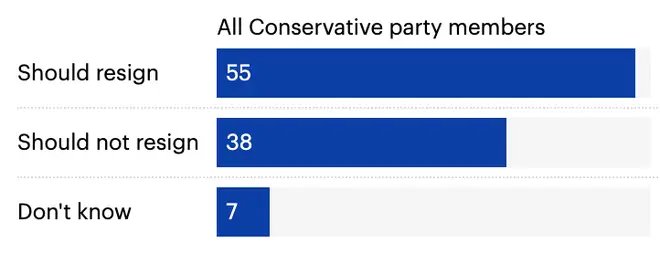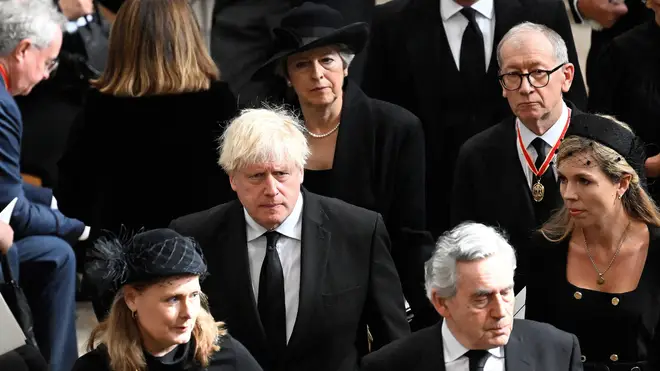
Oli Dugmore 4am - 7am
18 October 2022, 14:07 | Updated: 19 October 2022, 09:44

Embattled Prime Minister Liz Truss is set to face the House of Commons on Wednesday for the first time since a new poll showed that a majority of Tory members want her to go, just weeks after they elected her as leader of their party.
Ms Truss will walk into the bear-pit of Prime Minister's Questions at midday on Wednesday, with Labour leader Sir Keir Starmer expected to provide a tough examination of her government's recent travails.
And her own MPs were showing signs of dissent on Tuesday night after she refused to rule out scrapping the pensions triple lock - which would mean millions of OAPs would face an effective drop in income.
It comes after a new YouGov poll on Tuesday found that 55% of members of want her to walk despite 57% voting in favour of her over Rishi Sunak.
She retains support from just 38% of the party membership – similar polling to when Boris Johnson finally left, when 59% wanted him gone and 36% thought he should stay on.

Mr Johnson is the most popular candidate to replace Ms Truss if the job became vacant, with 32% of members wanting him, followed by Mr Sunak's 23%.
The Prime Minister is trying to battle on after a disastrous start to life at Downing Street, having been elected only on September 5.
She had to tear up her economic policies of hefty tax breaks after markets were spooked by whether the Government could afford them, then sacked Kwasi Kwarteng as Chancellor just days into his job.
Ms Truss replaced him with Jeremy Hunt who then killed off most of the rest of the economic plan on Monday, leaving questions over whether the Sunak supporter was more in charge than she was, and Tories reportedly plotting to oust her.
Then, as Penny Mordaunt was sent into to bat for her in the Commons instead of answering an urgent question about her sacking her ex-chancellor, Ms Truss decided to suddenly turn up in the Commons – then left after half an hour without saying anything.
She said on Monday evening she had gone "too far and too fast".

"First of all, I do want to accept responsibility and say sorry for the mistakes that have been made," the PM told the BBC.
"I wanted to act, to help people with their energy bills, to deal with the issue of high taxes, but we went too far and too fast.
"I have acknowledged that. I have put in place a new Chancellor with a new strategy to restore economic stability.
"Now what I am focused on is delivering for the public."
Read more: Liz Truss faces Cabinet colleagues after saying sorry for going 'too far, too fast' with mini-Budget

The Tory leadership election sees MPs whittle down candidates in rounds of voting until two remain, and then they are put to the membership.
However, there has been talk that should Ms Truss be ousted, they would maybe try to circumvent that final round by having the lowest supported of the final two drop out, coronating the remaining candidate as leader.
As it stands, any ousting that did not come from Ms Truss’s own volition would need an intervention from Sir Graham Brady, the chairman of the 1922 Committee of backbenchers.

Pensions paying more than working for the NHS
The Prime Minister's official spokesman did not commit to maintaining the triple lock on Tuesday, which has been a cornerstone of Conservative policy since 2010, and was in the Tory manifesto in 2019.
Under the triple lock, the state pension rises each year in line with inflation, average earnings growth, or 2.5% - whichever is higher. With the September inflation rate set to reach a staggering 10% when it is announced tomorrow, millions would have been set for a big increase in their income next year.
But with the government committing to cutting spending under Mr Hunt, and facing pressure from financial markets, the triple lock could now be scrapped.
Several Conservative MPs said they would not vote for any plans to drop the triple lock.
Nigel Mills, the chairman of the all-party group on pensions, told the Mail: "The idea that people on a fixed income would not get an increase in line with inflation is preposterous."
"It’s not like they can go back to work after being retired for 20 years to earn the shortfall. I hope someone gets a grip on this pretty quickly and this is just a mis-speak because it’s ridiculous."
"Our poll ratings are already nearly through the floor, but they’ll literally go through the floor at this rate."